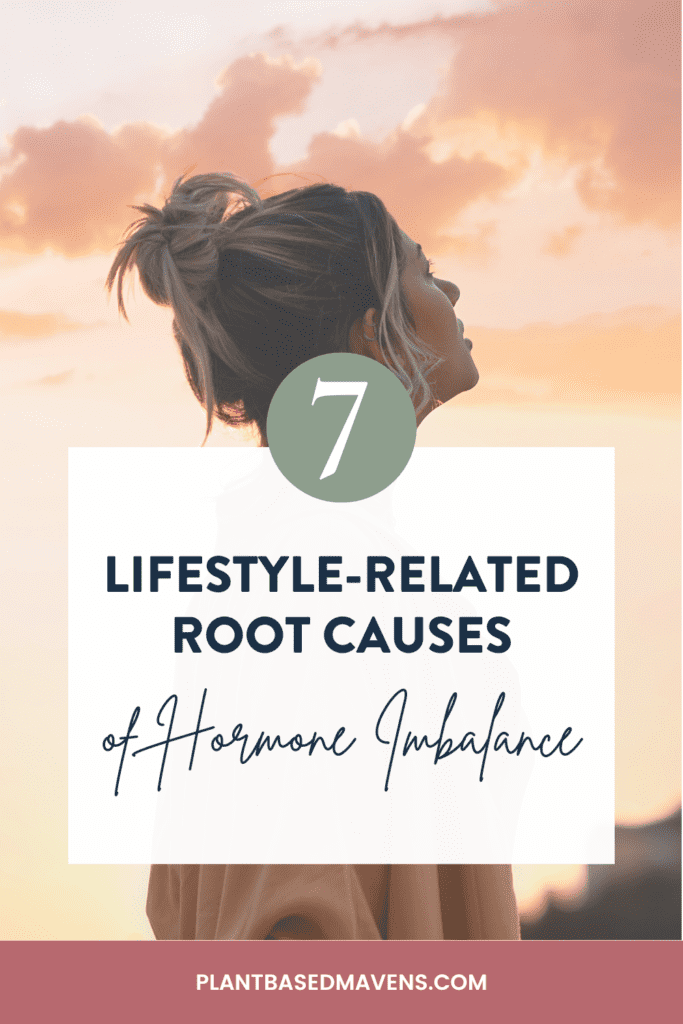Your hormones are your body’s chemical messengers. They send signals to every part of your body, delivering information that impacts your development, metabolism, mood, sexual function, and reproduction.
With hormone-related health conditions at an all-time high in women (think menstrual pain, PCOS, infertility), supporting your hormones is so important.
What causes hormone imbalances? After you’ve ruled out underlying health conditions and genetic factors, there are lifestyle-related root causes that you can address to help restore hormone balance.

What Does Hormone Imbalance Look Like?
Your hormone system is an intricate, complex system that helps orchestrate everything from your reproductive health to your mood. Some estimate that as many as 80% of women have some kind of hormone imbalance. So, what exactly does it look like or feel like to have your hormones out of whack? Here are some of the ways hormone imbalance can manifest:
- Irregular menstrual cycles
- High blood sugar, pre-diabetes, or diabetes
- Polycystic ovarian syndrome
- Endometriosis
- Fibroids
- Hot flashes and night sweats
- Fatigue
- Unexplained changes in your weight
- Difficulty getting pregnant
- Hair loss
- Acne
- Digestive issues like constipation or bloating
- Low sexual desire
- Thyroid disorders
Your eating patterns
The foods you eat impact so many aspects of hormone health. Your eating pattern shapes your microbiome and determines whether you have nutrient depletions. In general, a plant-based eating pattern with plenty of fruits, vegetables, fiber, and healthy fats is hormone-supportive. If you’re new to plant-based eating, here are three easy steps to get started. If you’re looking to make plant-based eating easier, download my free 62 Plant-Based Meal Ideas guide.
Gut health disruptions
Low diversity in your gut flora can contribute to hormone imbalance. How can you support your gut health? Eat fiber-rich foods like oatmeal, leafy greens, and beans and fermented foods like coconut yogurt and kimchi.
Stress
Chronic stress disrupts the balance of hormones. While it’s impossible to remove stress completely, it is important to learn how to manage the stressors in your life so they don’t take your hormones for a ride. Try one of these 5 mindfulness practices to manage stress.
Poor sleep
Sleep is crucial to keeping hormones in balance. Aim for 7-9 hours a night. Give yourself at least 20 minutes to wind down before bed. Dim the lights, cool the room temperature, and put screens away.
Environmental toxins
Chemicals in personal care and cleaning products, plastics, and unfiltered water can disrupt hormones in a multitude of ways. Learn the 7 easiest ways to reduce your exposure to hormone disrupting chemicals.
Not eating enough fiber
Fiber helps keep your gut healthy and clears excess hormones like excess estrogen. This one is easy – fiber is only found in plant foods, so eat more plants!
Nutrient depletions
Many nutrients play key roles in your hormone system. Along with eating a balanced plant-based diet, consider checking out our Plant-Based Basics Course to learn if you might need certain supplements to top off your nutrient levels.


